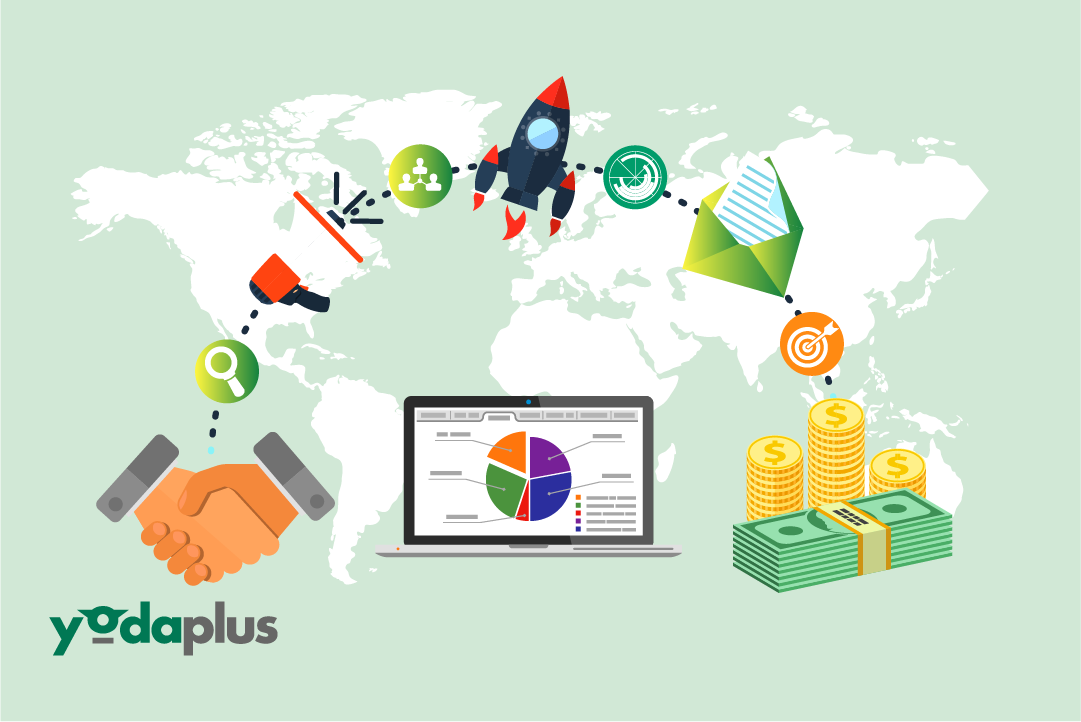
The Supply Chain’s Next Move: Adapting to Agentic AI Innovations
April 22, 2025 By Yodaplus
Introduction
The supply chain is no longer just a back-end function; it’s the strategic backbone of enterprises navigating a world of uncertainty, speed, and data overload. With global networks growing more complex and customer expectations reaching new highs, traditional systems are buckling under pressure.
Enter Agentic AI.
More than a buzzword, Agentic AI is emerging as a powerful layer of intelligence across logistics, procurement, and supply chain technology. It enables systems not just to react but to reason, plan, and execute tasks autonomously. As adoption ramps up, we are witnessing a transformation that’s as operational as it is strategic.
Let’s explore the forces behind this shift and why now is the time for supply chains to adapt.
Why the Shift? The Forces Fueling Agentic AI Adoption
- Real-Time, Multi-Node Complexity
Modern supply chains span continents, partners, and systems. Disruptions from weather delays to geopolitical tensions—demand agile, multi-agent responses that traditional automation can’t handle. Agentic AI enables intelligent coordination between nodes, rerouting shipments, reallocating inventory, and communicating across stakeholders with minimal human intervention. - Unstructured Data Explosion
Sensors, IoT devices, and API feeds are flooding supply chains with real-time data. From warehouse conditions to customer sentiment, this unstructured data holds immense potential, but is unreadable to rule-based automation. Artificial Intelligence solutions powered by agents can parse, prioritize, and act on this information in milliseconds. - Demand for Autonomous Decision-Making
Whether it’s a port delay or a raw material shortage, businesses can’t afford to wait for human-led workflows. Agentic AI enables autonomous agents to identify bottlenecks, evaluate alternatives, and take corrective actions without requiring manual oversight. - API-Driven Ecosystems
Modern supply chain stacks are modular, featuring ERPs, CRMs, warehouse management systems (WMS), and logistics APIs. Agentic systems excel in this environment. These agents can move across applications, pull insights, and execute complex workflows using connected data layers. - Sustainability and Risk Pressure
Enterprises face growing pressure to decarbonize and derisk their supply chains. Autonomous agents can model carbon footprints, suggest greener logistics routes, and flag ESG compliance risks—bringing sustainability and governance into real-time operations.
Agentic AI in Action: Use Cases Across the Supply Chain
Autonomous Freight Coordination
Agents manage logistics schedules, reroute delayed shipments, and communicate with third-party vendors to ensure minimal disruption and optimal delivery.
Inventory Optimization
AI agents assess demand signals, supplier lead times, and warehouse stock levels to automate restocking, reallocation, and markdown strategies, delivering cost savings and better availability.
Supplier Collaboration & Procurement Intelligence
Procurement agents can autonomously evaluate supplier performance, identify risks, and even execute micro-purchases based on context.
Demand Sensing & Forecasting
Using data mining, market signals, and historical patterns, autonomous agents generate highly accurate demand forecasts that adjust in real-time—minimizing overstock and stockouts.
Sustainability Monitoring
AI agents track emissions, waste, and regulatory KPIs across the chain. They recommend optimizations that align with compliance frameworks and ESG goals.
Why It Matters for Business Leaders
Integrating Agentic AI into the supply chain isn’t just a tech upgrade, it’s a strategic enabler. Businesses that adapt can:
- Increase operational resilience
- Reduce costs through smart automation
- Deliver better customer experiences
- Meet sustainability and compliance benchmarks
- Scale intelligently with reduced overhead
But to realize these gains, companies must act fast—and build the infrastructure to support intelligent agents.
Final Thoughts: Building the Intelligent Supply Chain
The future of supply chain isn’t linear or manually managed. It’s a dynamic, autonomous network of intelligent agents that can act, adapt, and collaborate in real time. With the right strategy and implementation support, businesses can make this vision a reality.
At Yodaplus, our supply chain technology services help enterprises implement next-generation Artificial Intelligence solutions built for speed, scale, and sustainability. From pilot deployments to full-scale AI integration, we help you unlock the power of autonomy in your logistics operations—faster.
Let’s build smarter supply chains together.